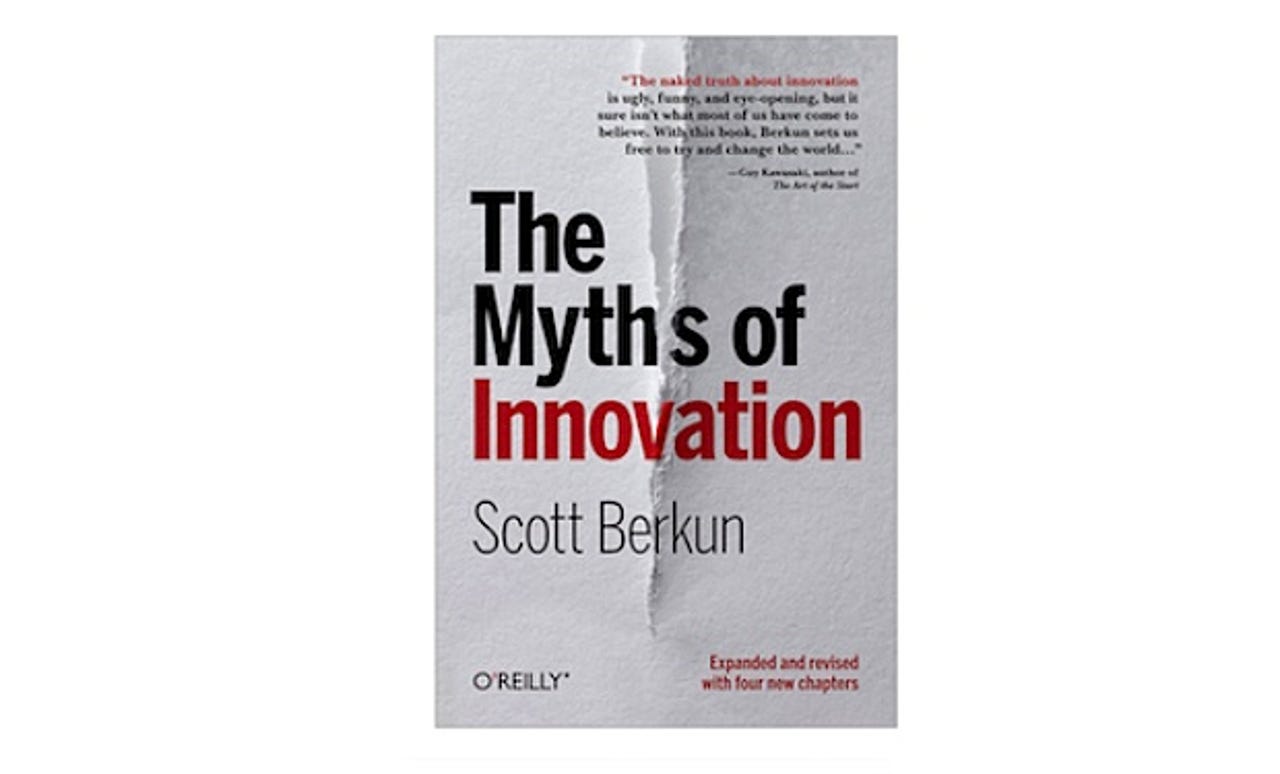Book review: The Myths of Innovation

Who's innovative? Who's not? Newton? Apple? Henry Ford? eBay? Tim Berners-Lee? This dryly humorous update of a classic account of how major successes really happen gives you a very different and often contrary view of inventors, creators and developers, backed up by a wealth of fascinating detail.
Scott Berkun — who notes that in his time at Microsoft he worked on versions one through five of Internet Explorer and disclaims all responsibility for IE6 — doesn't believe that what he more often calls 'the i- word' is necessarily something to strive for in the first place. The term is over-used, often for no valid reason, and we often confuse the creation of great products with having the idea for the product in the first place — or with making a product into a business success. If you want to solve problems, make your customer happy, make your business more successful or just be creative, Berkun suggests that you work on doing that instead of fixating on being innovative.

The chapters debunking the 'myths' of innovation are ways of getting past assumptions that can stop you (or your company) from getting those things done. We like creation myths, but while the story that eBay was invented to sell a girlfriend's Pez collection is a better read than the truth (that selling online is efficient) it's not as much use at helping you work out if your own ideas are significant. Some of the myths that Berkun busts may seem self-evident once you think about them: 'eureka' moments like the invention of the laser are the culmination of years of hard work; innovations are rarely produced by the solitary genius; good ideas are usually ridiculed before they're adopted; the best ideas don't always win. But what he does very well is make you think about them, and provide enough evidence to convince you.
Some of this is controversial, but all of it is interesting. Berkun raises the paradoxes of innovation: it can take years to know what an innovation is good for and innovation is not always good. DDT kills mosquitos but causes terrible pollution; the speed of the clipper ships may have been responsible for the Irish potato famine.
The downside of the wealth of references is that Berkun crams in so many that there's not always enough detail: the description of all the inspirations behind Visicalc is tantalising, although it's good to have longer descriptions of the founding of Craigslist and Flickr, or the story of the original wooden PalmPilot prototype to put some meat on the bones. He reminds you that good management is important — if you have to cope with an obnoxious genius, you'll be comforted by the suggestion that a healthy team is more important (and anyone who is an obnoxious genius might get the hint to tone it down).
If you're seeking help in getting your own project moving, the latter part of the book is the most useful. The chapter on why some ideas didn't take off the first time leads into a section on finding and nurturing ideas. The new chapters in this edition include directions on how to brainstorm usefully, how to frame, refine and pitch your ideas, and an excellent (but short) chapter on motivating yourself.
For once, the bibliography doesn't feel like filler: Berkun is as generous at referencing other books as he is at including evidence for history that isn't quite what you've heard before. One of his favourites is described as being "about strategy and tactics but [providing] reasons from history that they work" — which is an excellent description of his own book.
If you want to do something significant, creative and (yes) innovative, then The Myths of Innovation is a great touchstone for debunking assumptions that will otherwise derail you.
The Myths of Innovation By Scott Berkun O'Reilly Media 256 pages ISBN: 978-1449389628 £13.99
Mary Branscombe